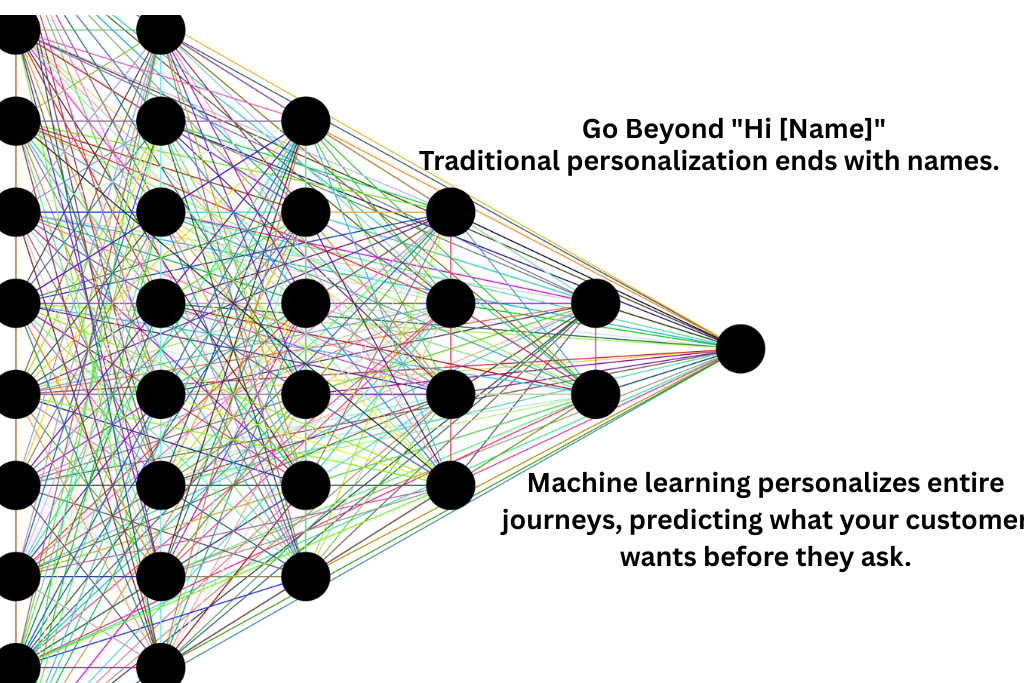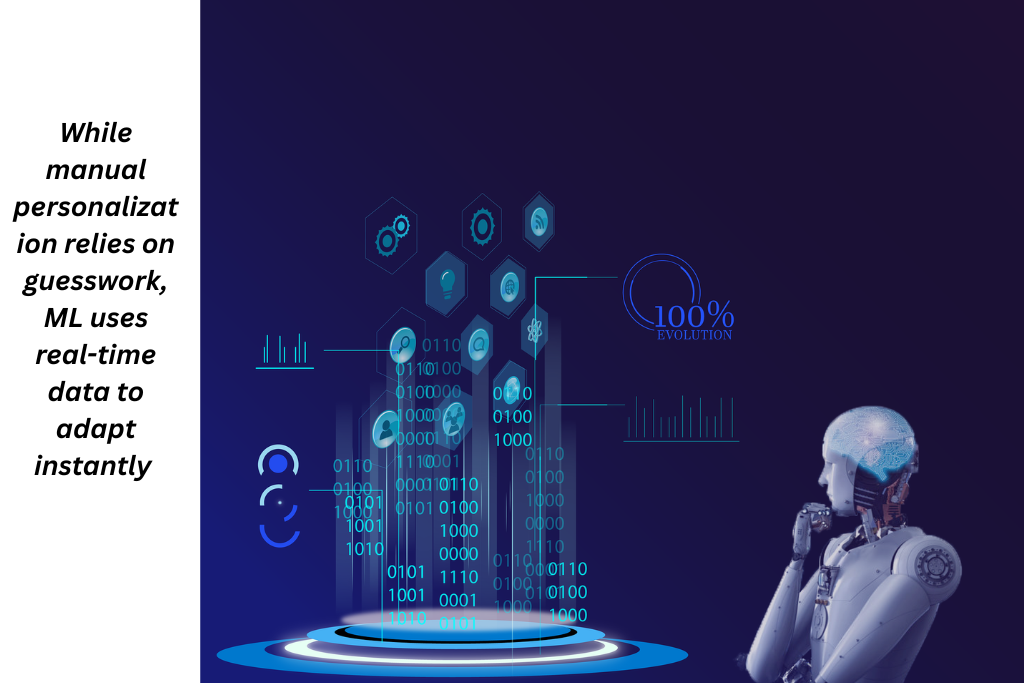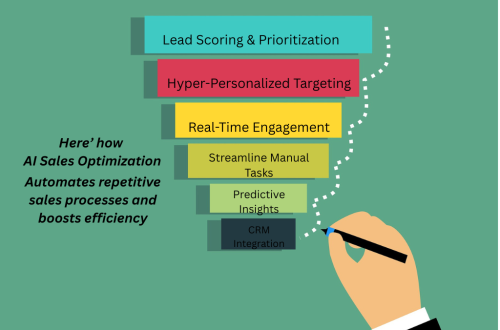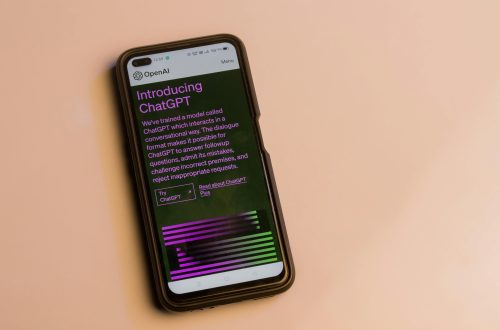
Machine Learning Personalization for SMEs: How to Compete with Big Brands on a Small Budget
The product recommendation that feels spot-on and speaks directly to the user’s needs is what makes your marketing stand out. However, SMEs face a tough challenge in personalized marketing. The idea of delivering a tailored experience to individual customers feels out of reach because:
- They compete with large corporations with massive marketing budgets
- Dedicated AI teams
- Sophisticated personalization engines
Thanks to advancements in machine learning personalization tools, you don’t have to spend a six-figure cost for marketing. Even small businesses can now harness the power of data to create meaningful customer interactions. This article will show you how.
What is Machine Learning Personalization?
Machine learning (ML) is a type of artificial intelligence. It allows computers to learn from data and improve over time. Machine learning tools don’t need to be programmed for every task. This capability makes them efficient for marketing as these tools analyze customer behavior and spot patterns. Then use the gathered data to automatically send personalized content, offers, and messages.
How It Differs from Traditional Rule-Based Personalization
Traditional personalization works on fixed rules set by marketers. For example, if the customer is from New York, then show ad A. If he clicks on this link, then send email X. These are simple yet rigid rules. They cannot adapt on their own and cannot handle complex customer behavior.
On the contrary, machine learning personalization is dynamic. It is intelligent as it
- Learns from the past behavior of users
- Can make predictions about what customers will like
- Adapts in real time based on new data
- Improves automatically the more it’s used

Why It’s a Game-Changer for SMEs?
Machine learning personalization has changed the marketing game. SMEs can now use ML tools without big teams or budgets. It automates personalization without constant manual setup. Machine learning tools also increase the accuracy by targeting customers with content they care about.
In short, machine learning takes the guesswork out of personalization. It helps small businesses deliver better customer experiences. SMEs using ML personalization deliver better customer experiences and lead to more engagement and conversions.
Why SMEs Often Struggle with Personalization?
There is a myth that machine learning personalization is only for big companies. Despite the significant boost in sales and customer loyalty, many small and medium-sized enterprises SMEs find it difficult to implement effectively. The reasons include limited budget and resources of SMEs. Unlike large corporations, SMEs usually don’t have the luxury of big marketing budgets. They also don’t have full-fledged IT teams. Investing in high-end personalization platforms or custom AI solutions often feels out of reach.
SMEs often rely on basic and outdated CRM systems. They use simple email marketing platforms that offer limited personalization features. These tools can add a first name or generic information, but cannot track behavior or predict preferences.
This outdated perception holds them back. They avoid exploring affordable and user-friendly tools. They believe that machine learning is too complex and is only useful at the enterprise level.
However, modern machine learning tools are simpler and more accessible. This allows SMEs to unlock the personalization without needing a big budget or tech background.
Affordable Machine Learning Tools for SMEs
Here are the tools that make ML personalization easy and budget-friendly.
Optimove
Optimove is the best tool for email marketers and e-commerce brands looking to boost customer retention. It is a customer data platform. Optimove has built-in AI personalization features. It helps to gather customer data from multiple channels. This tool creates micro-segments based on behavior. Using Optimove, you can send personalized campaigns automatically.
Clerk IO
It is an AI and machine learning driven personalization tool for e-commerce websites. Clerk.io is best for online stores that want to increase average order value. It helps in product recommendations and personalizing emails. Clerk.io uses customer behavior to improve conversions.
Levity
It is best for small teams who want to automate repetitive tasks. It is a no-code machine learning tool that automates workflows and organizes customer data smartly. Levity helps in sorting and tagging content. It triggers actions based on customer input or data.
Segment + ChatGPT
It is a combo of Segment and ChatGPT, which makes it reliable for businesses looking for deep personalization. This combo tracks real-time user actions on your site. The data is then sent to ChatGPT for personalized emails and messages.
Pecan AI
It is a predictive analytics platform that requires no coding. Pecan AI forecasts customer churn and campaign success. It integrates with your existing data tools and helps to build custom ML models with a few clicks.
Simple ML Use Cases SMEs Can Implement Today
Here are the practical machine learning personalization strategies. You can apply these to improve personalization and grow your business.
- Personalized product recommendations on e-commerce sites. Machine learning analyzes what customer browses and then suggests products they like.
- ML personalization goes beyond generic email campaigns. It personalizes email campaigns based on how users interact with your website or emails.
- ML-based chatbots don’t just answer FAQs, but they also adapt to the tone in which the customer is communicating. This quick adaptation makes them more reliable and customer-friendly
- Machine learning can personalize dynamic website content blocks based on visitors’ behavior.
- It can also score leads automatically based on how likely they are to convert.
How to Get Started With ML Personalization Without Overspending?
Machine learning personalization doesn’t need a massive budget or a full-tech team. You just need the right strategy with the right tools to keep this marketing highly effective without overspending. Follow these tips to make it easier:
- Start small and don’t try to personalize everything at once. At first, focus on one channel, such as email, and then branch out.
- Although many ML tools offer free plans, you should test and check what suits your needs the best.
- Instead of hiring a full-time AI engineer, hire a consultant for the initial setup. Hiring freelancers will help you get started with a fraction of the cost.
- Choose the tools that integrate with your current CRM and email systems. This avoids extensive migration of data.
Conclusion
Investing in machine learning personalization may seem like a big step for SMEs. However, it quickly pays off. That’s why more SMEs are turning to AI-driven personalization to get measurable returns.







One Comment
Pingback: